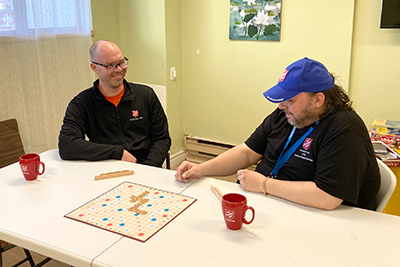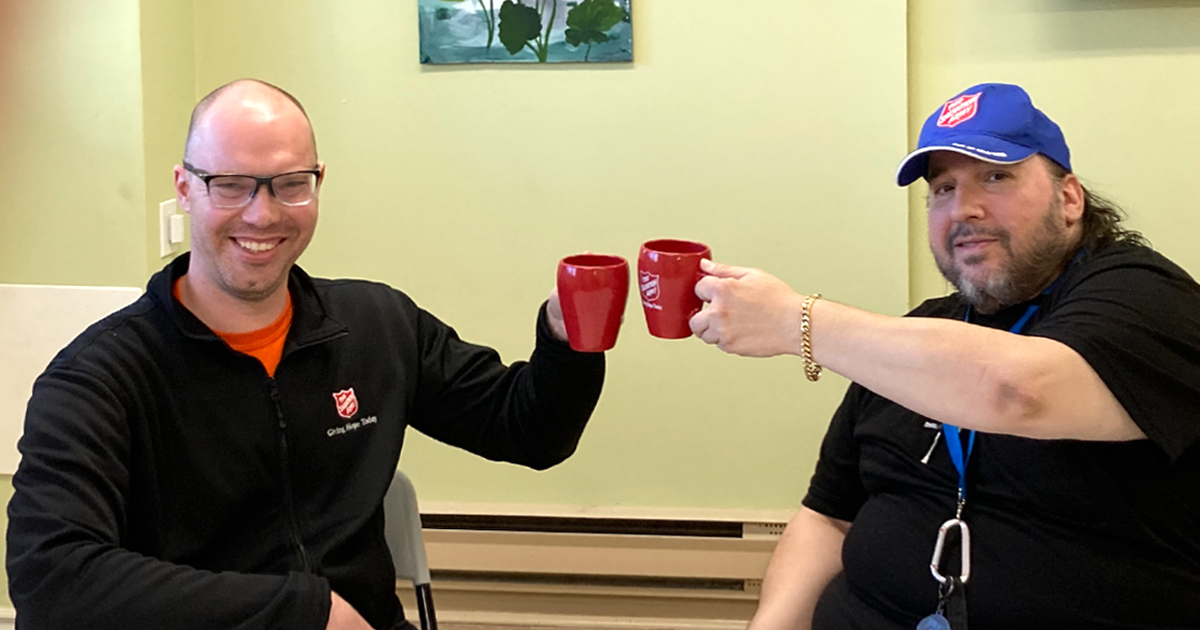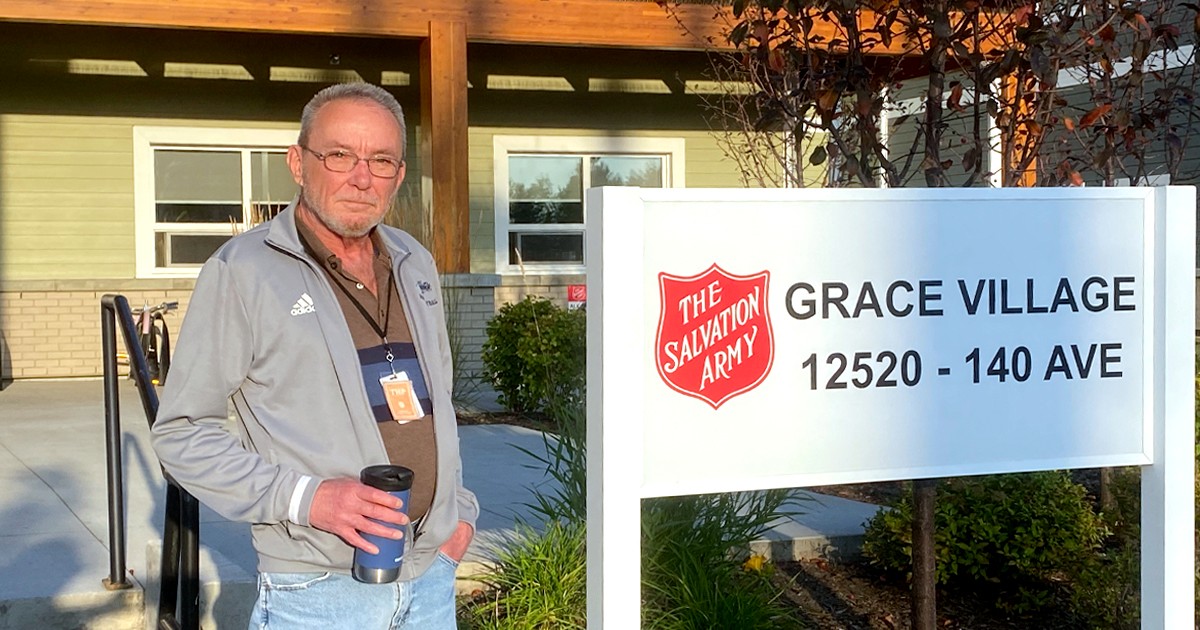In the winter of 2017, Bob Pollakis, 57, was forced to leave his home. After a harrowing incident a few years prior, Bob had been taking medication to deal with post-traumatic stress disorder (PTSD). However, the medication had serious side effects that ended up affecting his life.
Place of Guidance
“The medications I was taking at the time made me a doormat, and my roommates, who I thought were my friends, began taking advantage of me,” he says. “When I stopped taking my medication, and they realized I was standing up for myself, they didn’t like that. It cost me my house and friendships. I ended up homeless.”
With only a shirt, jeans, socks and one pair of shoes, Bob walked the streets of Hamilton, Ont., trying to keep warm. After three days out in the cold, he finally found an emergency shelter bed at The Salvation Army’s Hamilton Booth Centre.
“The Hamilton Booth Centre was the first place that took me in and had someone who listened to me,” Bob says. “It’s a place that cared for me and gave me guidance.”

Peer-to-Peer
During the months he spent at the shelter, Bob met Jonathan Miedema, who was the chaplain for the Booth Centre at the time. Bob credits Jonathan with being the first person who listened to him express his emotions, something that was important for improving his mental health.
“We clicked so well because, for the first time in my life, he was the only person who actually listened to me,” Bob says. “I had been bottling things up for too long and was unable to cope with a lot of stuff. Having him listen made a big difference for me.”
Because of the positive impact it had on him, Bob began encouraging other residents to talk about their issues. He soon discovered that many of them felt comfortable talking to him. Bob believes that they trusted him because he had shared similar experiences with them, and therefore truly understood what they had gone through.
“The more I was involved with them, the more everybody suggested that I become a counsellor. That’s when I decided to jump into a peer-to-peer program and got certified,” he says.
Helping Others
Bob completed his peer support certification at the Mental Health Rights Coalition. Since leaving the Booth Centre, he found his own apartment to live in through social housing and has volunteered for The Salvation Army, offering peer-to-peer counselling to clients. He also volunteers for the food bank.
As he approaches retirement age, Bob aspires to continue helping others going through difficult times in their lives.
“The Salvation Army, to me, is always going to be something that I’m going to strive to help because of the good they did for me and others,” he says.










Leave a Comment